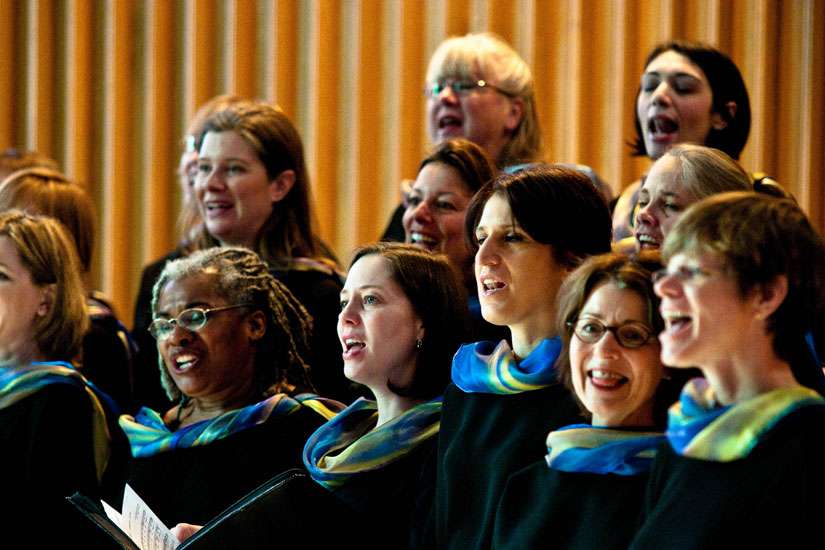The CCCB plans to replace the Catholic Book of Worship III some time in 2018. Composers have until Nov. 30 to get their hymns, psalms and Mass settings into the National Liturgy Office in Ottawa.
The thick, green CBW III is now more than 20 years old, having first hit the presses in 1994. It has been made obsolete by two separate changes to the liturgy in English-speaking Canada.
Shortly after CBW III was published, Canadian parishes began using the New Revised Standard Version of the Bible for all the liturgical readings, including the Psalms. This change had been approved in Rome by the Congregation for Divine Worship and the Discipline of the Sacraments in 1992, but in 1994 the Congregation for the Doctrine of the Faith objected. The conflict over Roman approvals was only finally resolved in 2007.
The result has been that all the psalm settings in CBW III are a different translation from the psalms as translated in the Canadian lectionary.
The second change was the new translation of the Roman Missal into English ordered by Rome and put into practice the first Sunday of Advent, 2011. This change rendered all the CBW III Mass settings, including acclamations and responses, obsolete.
New hymnals are always controversial and the committee selecting music for the new book has already noticed some grumbling.
“When we said a new hymnal, they erroneously thought we’re just throwing all traditions out the window and we’re just going all brand-spanking new,” said P.E.I. diocesan music director Leo Marchildon who chairs the hymnal selection committee. “I’ve always believed myself in a blended liturgy — bringing some of the best of the old as well as looking forward to the new.”
Marchildon’s selection committee is aiming to please the whole range of congregations and choirs with everything from plainchant to guitar-based hymns.
“What’s great about this is my youth group can use a subsection of the book for the songs that pertain to them, and the traditional choir has all the traditional stuff and I mix and match,” he said. “I want the book to be very useful for all, regardless of what your musical forces are in your parish.”
The St. Michael’s Choir School graduate is aware that, 22 years after first published, there are still some unhappy with CBW III.
“I believe some of the hymns within CBW III were not met uniformly with appreciation,” Marchildon said. “Some of the stuff didn’t catch on. There was some stuff in CBW II that was dropped and shouldn’t have been — just for a few words here or there, inclusive language for instance.”
The L’Arche Hymn (“Lord Jesus, You Shall be My Song”), translated from French by Toronto’s Fr. Stephen Somerville in 1970, was dropped because of a reference to “brothers.”
“It’s a beautiful hymn, but just because it talks about brothers,” said Marchildon. “Well, there’s no need to talk about brothers. You just have ‘our neighbours’ and change it and you get that wonderful hymn back.”
In a digital age and despite the fact many parishes project lyrics onto a screen during Mass, hymnals are still relevant, said Marchildon.
“We’ve already become a very screen-dependent generation. We’re stuck to our laptops, to our iMacs, to our phones, to our iPads,” he said. “This is supposed to be a time when we’re actually interacting organically with live people. The fear of having everything up on the screen, it might make us more passive — like a television audience.”
The CCCB hopes for something uniquely Canadian.
“Regarding Canadian content, this is always desirable,” Msgr. Murray Kroetsch, consultant to the National Liturgy Office on the new hymnal, wrote in an e-mail. “However, when it comes to the composition of liturgical music, Canada has not produced a large body of hymnody… All of the responsorial psalms will be Canadian. The collection of Canadian settings of the NRSV psalms (as in the Lectionary for Canada) has been completed and will be included. Several of the Mass settings will likely be by Canadian composers and, hopefully, many of the acclamations.”


